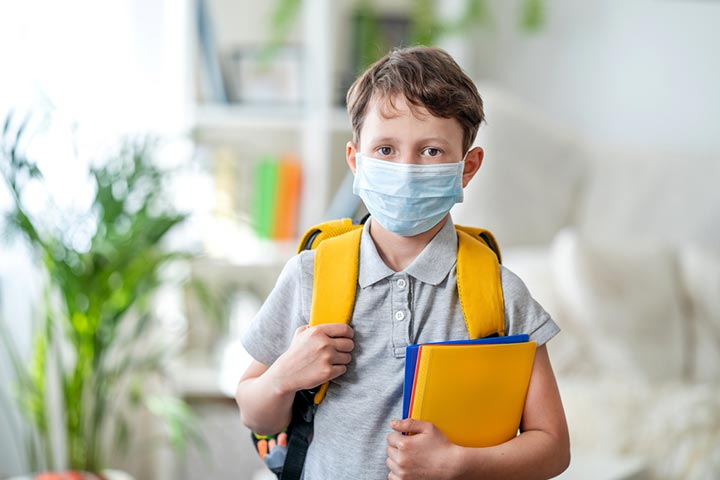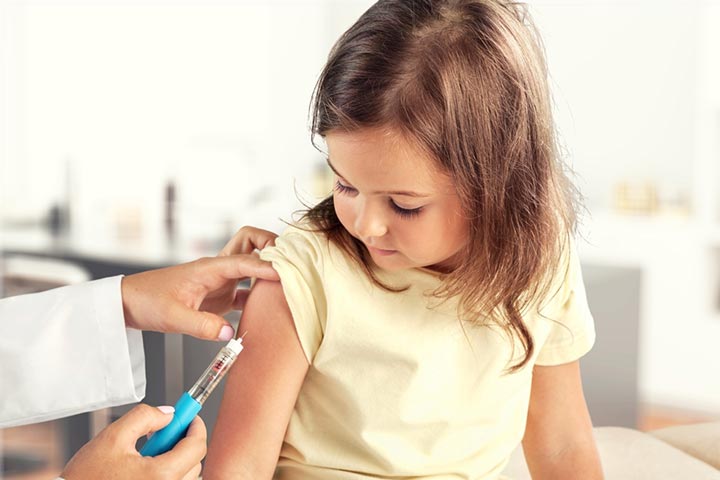
Image: Shutterstock
It’s true. Healthy habits reduce the risk of certain diseases. A few simple everyday practices can help us and our kids fight off infectious diseases. Good hygiene is definitely one way to prevent infections and even some deadly diseases. Having a better understanding of how diseases are transmitted from one person to another can also protect our kids from getting sick.
Most infectious diseases are caused by tiny microbes moving from one body to the next. These living microbes enter the body through our mouths, nose, ears, and genital passages. They can also transmit through animal or insect bites. The primary and most effective way of preventing most diseases is through good hygiene practices (1).
A Few Simple Precautions
Below, we list down a few healthy habits that can go a long way when it comes to safeguarding kids against deadly diseases:
- Wash hands. Teach your kids to wash their hands before eating food, after using the bathroom, or after doing any other dirty tasks. Kids should also be taught to wash their hands after coughing, sneezing, or blowing their nose. It’s essential to teach them the right way to wash their hands by lathering up enough soap and rubbing it into the hands, wrists, and palms of their hands. Ensure they are cleaning their fingertips, between their fingers, and under the nails.
- Cover a cough. Covering the mouth while coughing is another basic hygiene practice that needs to be followed from a young age. Teach them to sneeze or cough into a tissue, and dispose of it once used. If a tissue is not handy, it’s best to sneeze into the elbow than using their hands.
- Avoid sharing glasses, dishes, and eating utensils.
- Make sure to wash and bandage any cuts and scrapes.
- Eat healthy. Following a healthy and nutritious diet is essential for the proper growth and development of kids and to safeguard them against various health conditions. A healthy diet should consist of a variety of fruits and vegetables, protein, whole grains, and low-fat dairy (2).
While the above practices are important, the question arises — are these enough?
Healthy habits and good hygiene play a significant role in limiting the transmission of the disease. But it doesn’t 100% safeguard your children against deadly diseases. Below we discuss a few things that’ll help in protecting your kids against fatal diseases:
Vaccinations: Timely vaccinations are crucial in protecting your child against deadly viruses and bacteria that cause infections and diseases (3). Vaccinations protect your child from falling sick even if they are exposed to harmful bacteria and are much safer and more effective than medicines. As parents, you could create a vaccination chart for your family to make sure everyone is up-to-date with their vaccines. Vaccines protect your child against deadly diseases such as tetanus, polio, and diphtheria.
Childhood immunization can seem overwhelming to a new parent. Organizations such as the CDC, the American Academy of Family Physicians, and the American Academy of Pediatrics have vaccine schedules that protect children from around 14 deadly diseases (4). It is vital to keep track of your child’s vaccines so that you have a complete record of it if you move places, change doctors, or the doctor’s record gets lost. You could also ask your doctor for an immunization record form so that it becomes easier to keep track of the vaccines.
Over the years, the decision to vaccinate your child has been controversial among some parents over its safety. But no evidence has been found that shows that vaccines could be harmful to your child. Some children could have a reaction to certain vaccines, but it’s important to note that the benefits of immunization far outweigh its side effects.
Health screening: Health screening is another way to protect children from deadly diseases. Below we discuss a few tips that might help you:
- Make sure you keep regular health check-ups with your child’s pediatrician.
- Do not miss any appointments and take health screenings if your doctor recommends it.
- If your child exhibits any symptoms or has any health issues, note everything down before visiting the pediatrician so that you don’t miss out on anything during the consultation.
It’s also important to be aware of the symptoms of common diseases and stay informed of any flu that may have broken out in your locality so that you can take the necessary precautions.
Following a healthy lifestyle is one way to boost your child’s immunity and protect them against diseases. At the same time, ensure that your kids maintain good hygiene, follow healthy practices, and are up-to-date with their immunization.














